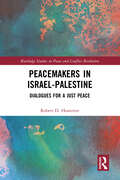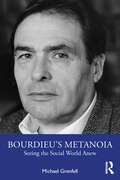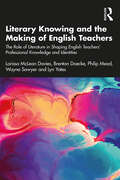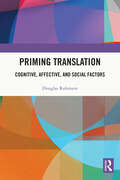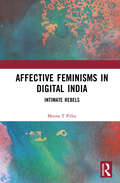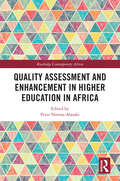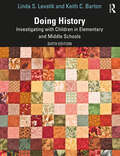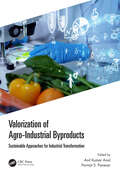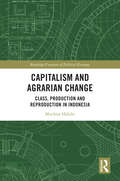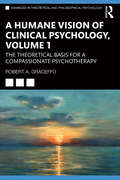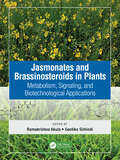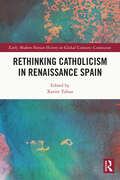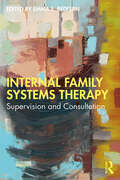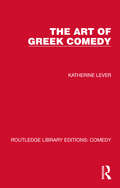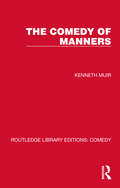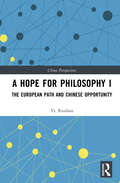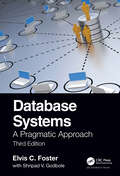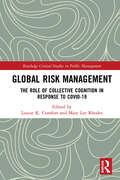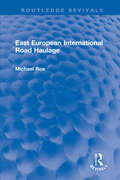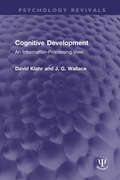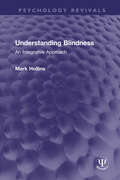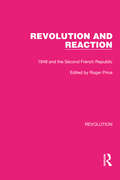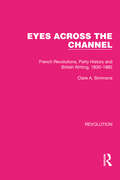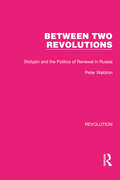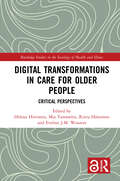Special Collections
Benetech’s Global Certified Accessible Titles
Description: Benetech’s GCA program is the first independent third-party EPUB certification to verify ebook accessibility. By creating content that is born accessible, publishers can meet the needs of all readers. Learn more: https://bornaccessible.benetech.org/
- Table View
- List View
Peacemakers in Israel-Palestine
by Robert HostetterThis book offers an analysis of the major sources of the Israeli-Palestinian conflict and suggests principles and processes for building a peacemaking platform. The primary aim of this book is to analyze the crucial roles and capacities of mid-level, nongovernmental peacemakers as they provide unique approaches to transforming the Israel-Palestinian conflict. It also aims to analyze and experience dialogue as the primary mode of peacemaking communication. The two-part format of this book creates a structural dialogue. Part One provides an academic introduction to the Israeli-Palestinian conflict, why it matters, the role of identities, and strategies for transforming the conflict based on international law and human rights. Part Two is presented in a dialogue format, providing further conflict analysis through storytelling and dialogues with peacemakers. This book will be of great interest to anyone engaged with peace and conflict transformation, ethnography, social justice, communication studies, and Middle Eastern studies, human rights and international law.
Bourdieu’s Metanoia
by Michael GrenfellBourdieu once commented that what was needed was a ‘new gaze’ on the social world – a metanoia. This book describes this view and how to do it. Based on biographical detail and the socio-political contexts which surrounded him, it sets out his vision of society and culture. Grounded on the distinction between traditional and modern worlds, it shows how ethnographic experience led Bourdieu to an intellectual epiphany. It demonstrates the growth of his conceptual tools and the emergence of ‘field theory’ in various contexts: law, religion, fashion, sport, culture, fine art, philosophy, literature and politics. The book offers an up-to-date, extensive account of Bourdieu, his work and its significance. It centres on philosophical questions of social experience and intellectual practice. Based around his entire oeuvre, it features recent posthumous publications in French, providing important insights for the first time into his way of viewing the world. Including issues of the state, neoliberalism and resistance, this book explores the ways in which the social, philosophical and political came together for Bourdieu to shape how we see ourselves and our place in the contemporary world – a metanoia. Being both an introductory and advanced text, it is a valuable resource for the newcomer to Bourdieu as well as the experienced researcher. It will be of interest to undergraduates, postgraduates, researchers of Bourdieu’s work in the areas of sociology, media, philosophy, religion, economics, architecture, cultural studies, education, music, journalism, gender studies, politics, the law, fine arts and linguistics.
Literary Knowing and the Making of English Teachers
by Brenton Doecke and Lyn Yates and Philip Mead and Wayne Sawyer and Larissa McLean DaviesAt a time when knowledge is being 're-valued' as central to curriculum concerns, subject English is being called to account. Literary Knowing and the Making of English Teachers puts long-standing debates about knowledge and knowing in English in dialogue with an investigation of how English teachers are made in the 21st century. This book explores, for the first time, the role of literature in shaping English teachers’ professional knowledge and identities by examining the impacts, in particular, of their own school teaching in their ‘making’. The voices of early career English teachers feature throughout the work, in a series of vignettes providing reflective accounts of their professional learning. The authors bring a range of disciplinary expertise and standpoints to explore the complexity of knowledge and knowing in English. They ask: How do English teachers negotiate competing curriculum demands? How do they understand literary knowledge in a neoliberal context? What is core English knowledge for students, and what role should literature play in the contemporary curriculum? Drawing on a major longitudinal research project, they bring to light what English teachers see as central to their work, the ways they connect teaching with their disciplinary training, and how their understandings of literary practice are contested and reimagined in the classroom. This innovative work is essential reading for scholars and postgraduate students in the fields of teacher education, English education, literary studies and curriculum studies.
Priming Translation
by Douglas RobinsonThis innovative volume builds on Michael S. Gazzaniga’s Interpreter Theory toward radically expanding the theoretical and methodological scope of translational priming research. Gazzaniga’s Interpreter Theory, based on empirical studies carried out with split-brain patients, argues for the Left-Brain Interpreter, a module in the brain’s left hemisphere that seeks to make sense of their world based on available evidence—and, where no evidence is available, primed by past memories, confabulates coherence. The volume unpacks this idea in translation research to test whether translators are primed to confabulate by the LBI in their own work. Robinson investigates existing empirical research to test hypotheses on the translational links between the LBI and cognitive priming, the Right-Brain Interpreter and affective priming, and the Collective Full-Brain Interpreter and social priming. Taken together, the book seeks to open translational priming studies up to the full range of cognitive, affective, and social primes and to prime cognitive translation researchers to implement this broader dynamic in future research. This book will be of interest to scholars in translation and interpreting studies, especially those working in cognitive translation and interpreting studies.
Affective Feminisms in Digital India
by Meena T PillaiThis book studies digital feminist activism in contemporary India. It provides a close and comprehensive analysis of the postmillennial digital moment in India which has given rise to new modes of women’s digital dissent. The volume examines how anti-rape narratives, Feminichy scandals, #MeToo movements, and menstrual activisms, amongst a host of other performative feminist dissent and their discursive medialities create ‘affective digital feminisms’ which both break with and continue the residual and emergent practices within feminisms in India. It looks at digital womanspeak from India and focuses on vernacular forms of dissent, through which the author aims to decolonize feminist imaginaries from their moorings in the West. The author explores new digital, cultural, and social geographies where politically untamed women use their precarity to unsettle deep sexist structures and mount a gendered critique of the political economy of the nation state. An important contribution to the study of feminism in India, the volume will be useful for students and researchers of gender and women’s studies, cultural studies, digital sociology, intersectional feminism, transnational feminism, digital humanities, and South Asian studies. It will also be appeal to readers interested in the history of women’s dissent in India.
Quality Assessment and Enhancement in Higher Education in Africa
by Peter Neema-AbookiThis book explores quality assessment and enhancement in higher education in Africa to illustrate the need to develop quality practices in measuring effective education and continually search for permanent improvement. The book demonstrates that technological and socio-economic trends, innovations, and inventions of the twenty-first century demand that additional attention be placed upon education for national, regional, and international development. Since conventions for quality assessment and enhancement need to be defined and systematic structures constructed to develop quality practices, the book shows how quality in higher education within Africa has been established and advanced to provide a framework for monitoring, auditing, and reviewing assessment and enhancement. Though the book considers African complexities and diversity, it incorporates global trends and utilises an international focus that enables readers to devise appropriate strategies for developing and enhancing quality and standards in higher education in both continental Africa and beyond. Illustrating why quality assessment and enhancement should be embraced in all aspects including inputs, processes, outputs and outcomes in educational settings globally, this book will be of interest to policymakers and scholars in the fields of Higher Education, Quality and Global Studies, African Education, African Studies and Management and Administration, Leadership and Professional Development Studies.
Doing History
by Keith C. Barton and Linda S. LevstikNow in its sixth edition, Doing History offers a unique perspective on teaching and learning history in the elementary and middle grades. Through case studies of teachers and students in diverse classrooms and from diverse backgrounds, it shows children engaging in authentic historical investigations, often in the context of an integrated social studies curriculum. The book is grounded in the view that children can engage in valid forms of historical inquiry—asking questions, collecting and analyzing evidence, examining the varied perspectives and experiences of people in the past, and creating evidence-based historical accounts and interpretations. Grounded in contemporary sociocultural theory and research, the text features vignettes in each chapter showing communities of teachers and students doing history in environments rich in literature, art, writing, and discussion. The authors explain how these classrooms reflect contemporary principles of teaching and learning, and thus, the descriptions not only provide specific examples of successful activities but also place them in a context that allows teachers to adapt and apply them in a wide range of settings. Doing History emphasizes diversity in two ways: Readers encounter students from a variety of backgrounds and see how their diverse experiences can form the foundation for learning, and they also see examples of how teachers can engage students with diverse experiences and perspectives in the past, including those that led to conflict and oppression. The book also discusses principles for working with English learners and newcomers, and it provides guidance in using multiple forms of assessment to evaluate the specifically historical aspects of children’s learning. Updates to this edition include updated historical and instructional examples to ensure currency, new suggestions for children’s literature to support good teaching, expanded attention to teaching about oppressed groups in history, and greater attention to when historical perspective taking is and is not appropriate.
Valorization of Agro-Industrial Byproducts
by Anil Kumar Anal and Parmjit S. PanesarThis book covers sustainable approaches for industrial transformation pertaining to valorization of agro-industrial byproducts. Divided into four sections, it starts with information about the agro/food industry and its byproducts, including their characterization, followed by different green technologies (principle, process strategies and extraction of bioactive compounds) applied for the management of agro industry byproducts. It further explains biotechnological interventions involved in the value addition of these byproducts. Various regulatory and environmental concerns related to by-product management along with biorefinery concept and future strategies are provided as well. Features: Provides extensive coverage of agro-industrial by products and their environmental impact. Details production of value-added products from agro-industrial waste. Describes environmental legislations and future strategies. Presents multidisciplinary approaches from fundamental to applied and addresses the biorefinery and circular economy. Includes innovative approaches and future strategies for management of agro-industrial waste. This book is aimed at researchers, graduate students and professionals in food science/food engineering, bioprocessing/biofuels/bioproducts/biochemicals and agriculture, bioeconomy, food waste processing, post-harvest processing, and waste management.
Capitalism and Agrarian Change
by Muchtar HabibiSmall-scale agricultural producers in the peripheral world are often condescendingly assumed to be a single social class (‘the peasantry’) to be pitted against the state or corporation. This book challenges this rather idealistic view by demonstrating that under current capitalist social relations (competition, efficiency and productivity, and profit maximisation), these agricultural producers have been differentiated into different agrarian classes by exploitation. By comparing two different contexts of local agrarian change in Indonesia—rice cultivation in Java and oil palm in Sumatra—this book exposes the different class locations of the agrarian classes among petty agricultural producers and the class relations between them. These are often inextricably linked to gender, clanship and generational issues. The power of class dynamics crucially shapes how agricultural production in both rice and oil palm is organised. The share received by different agrarian classes from the production site then prominently shapes the different nature of class reproduction for each agrarian class. This analysis demonstrates that the different agrarian classes possess different capacities and responses in their relation to the state or corporations. Any real emancipation attempt in the Indonesian countryside (and beyond) must start from a proper understanding of these class dynamics. This book marks a significant contribution to the literature on agrarian change, the political economy of development, rural development and Marxist political economy.
A Humane Vision of Clinical Psychology, Volume 1
by Robert A. GraceffoThe primary purpose of psychotherapy is to improve a patient’s subjective experience. A Humane Vision of Clinical Psychology, Volume I shows readers what this might really mean, how it can be achieved, and where prevailing views go wrong in achieving it. It lays out an alternative idea of human suffering and human healing, one that deemphasizes constructs and prioritizes experience itself. Early chapters argue that helping people to "know new things" is the ultimate target of psychotherapeutic change, but that our field has not sufficiently reflected on the complications of this task. A theory is then offered, which suggests that the unthinkable aspects of human experience are responsible for the very ways in which we human beings think. It invites and outlines a serious reformulation of psychotherapy in which human cognition is not the seat but the beneficiary of human change. This book will be valuable for therapists, psychologists, psychiatrists, and other practitioners as well as graduate and undergraduate students in the fields of psychiatry, psychology, psychotherapy, mental health, social work, and philosophy. It will be of great interest for clinicians who find themselves disenchanted with the field’s current ethos, which is stilted by scientistic approaches to soothing the suffering of the other.
Jasmonates and Brassinosteroids in Plants
by Ramakrishna Akula and Geetika SirhindiThis book provides a comprehensive update on recent developments of Jasmonates (JAs) and Brassinosteroids (BRs) in plant signalling and biotechnological applications. Over the last few decades, an enormous amount of research data has been generated on these two signalling molecules. This valuable compilation will enhance the basic understanding of JAs and BRs mechanism of actions ensuing tolerance mechanism of crops under climate changes for sustainable agriculture and human welfare. This book covers topics regarding the occurrence of JAs and BRs in plants, biosynthesis, role in plant growth and development, role of these PGRs during various abiotic stress tolerance in plants, crosstalk of Reactive Oxygen Species (ROS) and plant stress mitigation, regulation of JAs and BRs signaling pathways by microRNA, along with physiological and anatomical roles of JAs and BRs as wound healing, regeneration and cell fate decisions. The cross talk of JAs and BRs with neurotransmitters in plant growth and development. Bio-fortification of crop plants with BRs in managing in human health issues chapter enlightened new role of BRs in human wellbeing. This book will be beneficial to scientists, researchers, agriculturists, horticulturists, industries related to the crop and food production KEY FEATURES Reviews the global scientific literature and experimental data of the authors on the occurrence of JAs and BRs in various plants Update information on recent developments of JAs and BRs signalling and biotechnological applications in plants Highlights the physiological, metabolic and molecular mechanism of JAs and BRs under variable climates Addresses the abiotic and biotic tolerance management by JAs and BRs Describes the role of JAs and BRs in sustainable agriculture and human welfare in eco-friendly manner
Rethinking Catholicism in Renaissance Spain
by Xavier TubauRethinking Catholicism in Renaissance Spain claims that theology and canon law were decisive for shaping ideas, debates and decisions about key political and religious problems in Renaissance Spain. This book studies Catholic thought during the Spanish Renaissance, with the various contributors specifically exploring the ecclesiology and heresiology of the period. Today, these two subjects are considered to be strictly branches of theology, but at the time they were also dealt with in the field of canon law. Both ecclesiology, which studied the internal structure of the Church, and heresiology, which identified theological errors, played an important role in shaping ideas, debates and decisions concerning the major political and religious problems of the late medieval and early modern periods. In contrast to the conventional monolithic view of Spanish Catholic thought on ecclesiastical matters, the essays in this book demonstrate that there was a wide spectrum of ideas in the field of theology and canon law. The topics analyzed include Church and Crown relations, diplomatic controversies, doctrinal debates on slavery, ecclesiological disputes in dialogue with the Council of Trent, and theories for distinguishing heresies and repressing them. This book will be essential reading for those interested in disciplines such as Church history, political history, and the history of political and legal thought.
Internal Family Systems Therapy
by Emma E. RedfernInternal Family Systems Therapy: Supervision and Consultation showcases the skills of Richard C. Schwartz and other leading IFS consultants and supervisors. Using unique case material, models, and diagrams, each contributor illustrates IFS techniques that assist clinicians in unblending and accessing Self-energy and Self-leadership. The book features examples of clinical work with issues such as bias, faith, sexuality, and sexual hurts. Individual chapters focus on therapist groups, such as Black Therapists Rock, and on work with specific populations, including children and their caregivers, veterans, eating disordered clients, therapists with serious illnesses, and couples. This thought-provoking book offers an opportunity for readers to reflect on their own supervision and consultation (both the giving and receiving of it). It explores what is possible and preferable at different stages of development when using the IFS model.
The Art of Greek Comedy
by Katherine LeverOriginally published in 1956, this is a critical analysis of the comedies of Aristophanes and Menander studied in the context of the history of comedy, of the allied arts, and of contemporary life. Aristophanes and Menander are deservedly the most famous writers of Greek comedy. The extant comedies of Aristophanes are notable for wit, comical action, beautiful poetry, and the dramatization of such problems as health of mind and body, sex, money, government, law, religion, education, and drama, music and poetry. Menander portrays with delicate and sympathetic understanding a world in which the seeming evils of loss and discord eventually lead to the genuine goods of discovery and concord. The art of Aristophanes is critically examined in three chapters and that of Menander in one. For centuries Dionysos had been worshipped in a spirit of ecstasy which manifested itself in song, dance and the wearing of masks and costumes, pantomime, farce, and satire. The processes by which these diverse elements were developed and fused into the complex literary form of Old Comedy are the subject of the first three chapters. Aristophanes was not only pre-eminent as a writer of Old Comedy; he also participated in the transformation of Old Comedy into Middle Comedy, a curious and interesting dramatic form which is fully treated in the seventh chapter. In the last chapter the emergence of New Comedy is traced and the art of Menander criticized. The book ends with a brief indication of the various forms in which the spirit of Greek comedy had survived to the present day.
The Comedy of Manners
by Kenneth MuirOriginally published in 1970, this title starts with an introduction, in which Professor Muir distinguishes between the Comedy of Manners and other types of comedy and traces its origins in English and French literature, there are then chapters on the major writers – Etherege, Dryden, Wycherly, Congreve, Vanbrugh, Farquhar – and on Jeremy Collier’s attack on the immorality and profaneness of the plays. This is followed by a discussion of the reasons for the decline of comedy in the eighteenth century and an account of its revival by Sheridan and, belatedly, by Wilde. Professor Muir takes issue with a number of recent critics on the dramatic value of the plays.
A Hope for Philosophy I
by Ye XiushanAs the final work by Ye Xiushan, one of the most famous philosophers and philosophy scholars in China, this two-volume title scrutinizes the historical development of both Chinese and Western philosophies, aiming to explore the convergence between the two philosophical traditions.Combining the historical examination and argumentation based on philosophical problematics, the two-volume set expounds the key figures and schools and critical thoughts in both Western and Chinese philosophical histories. In this first volume, the author investigates the intellectual heritage of ancient Greece and Thales of Miletus as the cradle of European philosophy, freedom in Greek philosophy, reason and negation in classical German philosophy, and the relationship between epistemology and ontology in the philosophical history, thereby illuminating the core spirit of Western philosophy and theoretical quandary facing the contemporary European philosophy.This title will appeal to scholars, students, and general readers interested in philosophical history, comparative philosophy, Chinese philosophy, and Western philosophy ranging over Greek philosophy, German classic philosophy, and contemporary continental philosophy.
Database Systems
by Elvis C. Foster and Shripad V. GodboleThis book provides a concise but comprehensive guide to the disciplines of database design, construction, implementation, and management. Based on the authors’ professional experience in the software engineering and IT industries before making a career switch to academia, the text stresses sound database design as a necessary precursor to successful development and administration of database systems. The discipline of database systems design and management is discussed within the context of the bigger picture of software engineering. Students are led to understand from the outset of the text that a database is a critical component of a software infrastructure, and that proper database design and management is integral to the success of a software system. Additionally, students are led to appreciate the huge value of a properly designed database to the success of a business enterprise. The text was written for three target audiences. It is suited for undergraduate students of computer science and related disciplines who are pursuing a course in database systems, graduate students who are pursuing an introductory course to database, and practicing software engineers and information technology (IT) professionals who need a quick reference on database design. Database Systems: A Pragmatic Approach, 3rd Edition discusses concepts, principles, design, implementation, and management issues related to database systems. Each chapter is organized into brief, reader-friendly, conversational sections with itemization of salient points to be remembered. This pragmatic approach includes adequate treatment of database theory and practice based on strategies that have been tested, proven, and refined over several years. Features of the third edition include: Short paragraphs that express the salient aspects of each subject Bullet points itemizing important points for easy memorization Fully revised and updated diagrams and figures to illustrate concepts to enhance the student’s understanding Real-world examples Original methodologies applicable to database design Step-by-step, student-friendly guidelines for solving generic database systems problems Opening chapter overviews and concluding chapter summaries Discussion of DBMS alternatives such as the Entity–Attributes–Value model, NoSQL databases, database-supporting frameworks, and other burgeoning database technologies A chapter with sample assignment questions and case studies This textbook may be used as a one-semester or two-semester course in database systems, augmented by a DBMS (preferably Oracle). After its usage, students will come away with a firm grasp of the design, development, implementation, and management of a database system.
Global Risk Management
by Louise K. Comfort and Mary Lee RhodesThe rise and spread of Covid-19 in the beginning of 2020 presents a once-in-a-century challenge and opportunity for decision makers, managers, scholars, and citizens to understand the risks, mitigate its impact and prepare for future crises. Drawing on a global network of scholars, this book presents a comparative analysis of ten nations’ response to a global pandemic, while operating nominally under the framework of the World Health Organization. The book introduces the concept of ‘collective cognition’ as an analytic lens for examining the nations’ response to Covid-19 during the first six months of the emerging pandemic (January – June 2020) and draws out insights for improving systems of global risk management. This book addresses four primary audiences: policy-makers and leaders in nations struggling to contain viruses while guiding their societies under threat; academic researchers, students, and educators engaged in preparing the next generation of professionals committed to investigating emerging risk: managers of non-profit and private organizations that operate and maintain the networks of social, technical, and economic services that are essential to functioning communities; and the informed general public interested in understanding this extraordinary sequence of events and in managing the novel risk of COVID-19 in a more informed, responsible way.
East European International Road Haulage
by Michael RoeOriginally published in 1992, this study examines and analyses the role, planning and operation of international road hauliers based in the former East European countries. It outlines the problems they faced and the opportunities the new model of Europe should have provided at the time. It also emphasizes the role that West European hauliers could play in the market and the activities that the European Community carried out in this field in the light of 1992. It concludes by stressing the actions needed in the near future by governments and operators alike. Today it can be read in its historical context.
Cognitive Development
by David Klahr and J. G. WallaceOriginally published in 1976, the authors present a theory of cognitive development based upon an information-processing approach. This approach leads to the presentation of precise models of performance on a number of tasks derived from a set of critical quantitative concepts: elementary quantification, number concepts, conservation and transitivity. These models encompass both early and late developmental stages, and a process model of the developmental mechanism itself is outlined. Here is one of the first attempts to apply the information-processing view of cognitive psychology to developmental issues raised by empirical work in the Piagetian tradition. It includes an extensive analysis of the processing demands of several of the classic tasks and describes the development of a system capable of performing a wide range of other tasks, including the ability to be self-modifying. It provides an introduction to general concepts and detailed properties of cognitive models stated as production systems. It will be most valuable for students in cognitive development and related courses in developmental, cognitive, and educational psychology, as well as computer science.
Understanding Blindness
by Mark HollinsOriginally published in 1989, much was known about blindness, but the field was divided into specialties. Experts in the different areas were widely dispersed among university departments, rehabilitation agencies, and school systems, with the result that people in one specialty area often knew little about developments in other areas. It was hoped that this work would be useful in reducing that isolation, by presenting, within a single volume, basic information derived from different approaches to the subject of blindness. Individuals already familiar with material in some of the chapters could gain added perspective on the field as a whole by reading about other aspects of blindness outside their specialty area.
Revolution and Reaction
by Roger PriceThis book, first published in 1975, examines the events of the French Second Republic, the themes of protest and repression in particular. It analyses how popular discontent is mobilised and becomes political protest and revolution, and how the machinery of government operates in a crisis situation.
Eyes Across the Channel
by Clare A. SimmonsThis book, first published in 2000, uses interpretations of the French Revolution as a model to ask what history meant to Victorian Britain, how events became enshrined with the authority of history, and how such cultural assumptions might help us to read nineteenth-century British literature. By examining reactions to French revolution in a broad selection of texts, this book explores how the Victorians responded to developments in France in historical terms, repeatedly comparing new events to the touchstone of the first French Revolution, yet always with the goal of finding ways to understand Britain’s own past, present and future.
Between Two Revolutions
by Peter WaldronThis book, first published in 1998, is an original and comprehensive study of a key period of Russian history, between the success of the autocracy in retaining power in the 1905 Revolution and the debacle of the Tsar’s crushing defeat in 1917. Focusing on Stolypin, Prime Minister between 1906–11, the study explores tsarism’s final attempt to reform Russia. Stolypin seized the opportunity to drive through a programme which would have transformed the social and political structure of Imperial Russia by promoting the development of an independent peasantry and reducing the authority of the traditional elites. The book analyses the weakness of the new parliamentary system and the continuing influence of the traditional elites.
Digital Transformations in Care for Older People
by Helena Hirvonen, Mia Tammelin, Riitta Hänninen and Eveline J.M. WoutersThe book investigates digitalisation in care for older people by giving insight into service users’ and professionals’ opportunities to digital agency in the context of European welfare states. With a focus on service users and providers experiences of digital care, the contributions address the manifold and often contradictory consequences of active ageing policies and innovation programmes. To assess digital agency of older people, ageism and co-creation in the innovation processes as well the use of digital platforms are addressed, while care professionals’ digital agency is examined through empirical cases that focus on the interaction between human and non-human actors in long-term care services, the temporality and spatiality of care, and the organisational requirements for successful implementation of digital technologies. From a variety of conceptual and theoretical viewpoints, the chapters provide a comprehensive and timely overview of ways to address the phenomena of ageing and digitalisation. The book provides critical vantage points to academic readership, health and social care professionals, policymakers, other stakeholders as well as the general audience on the effects of digitalisation in care for older people.
